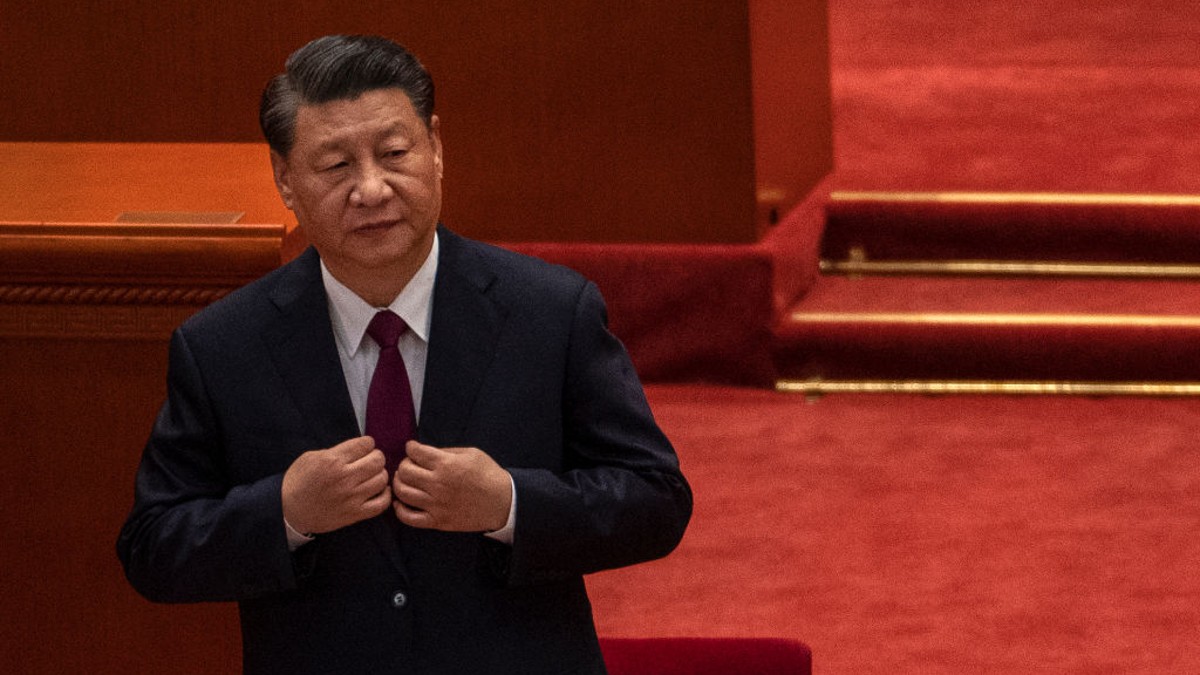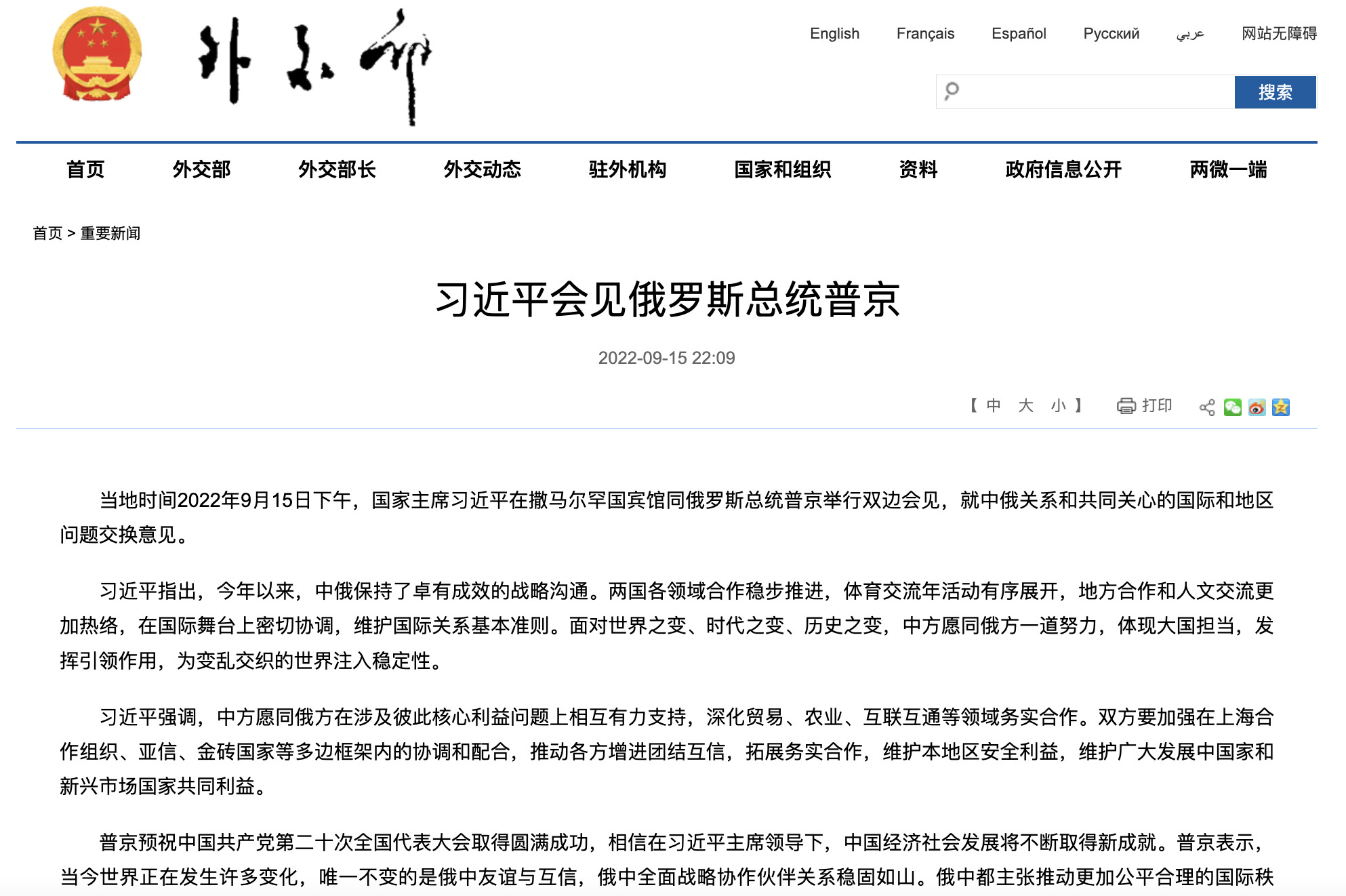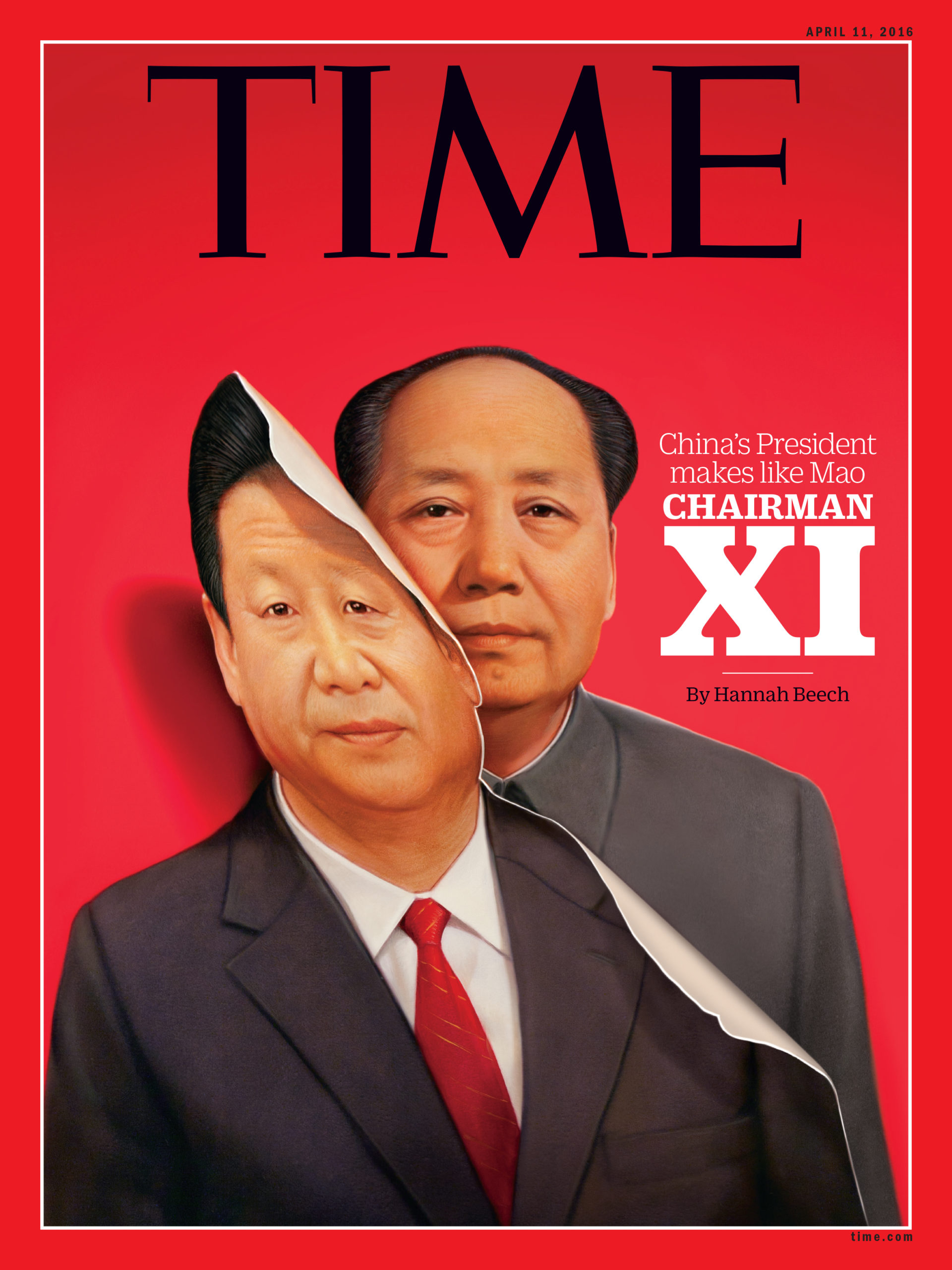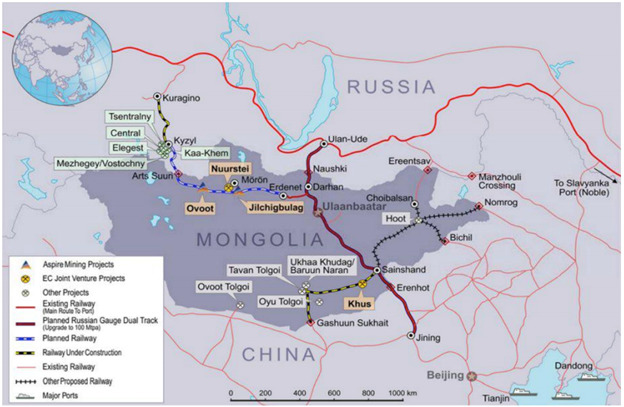Putin has some gas, but Xi has all the power in telling ‘no-limits’ face-to-face

Xi at a ceremony to honour the Beijing 2022 Winter Olympics and Paralympics at the Great Hall of the People on April 8, 2022 in Beijing. (Pic by Kevin Frayer/Getty Images)
Chinese President Xi Jinping and Russian President Vladimir Putin had their first face-to-face meeting since the two leaders upped and declared the “no-limits” friendship back in February, just a few days before Russia went and invaded Ukraine.
On Thursday the two best buds heaped word juice on the close relationship in two delightfully contrasting short public statements ahead of closed-door truth bomb talks which took place on the sidelines of the Shanghai Cooperation Organisation (SCO) summit in the Uzbek city of Samarkand.
It’s not only fascinating for fans of facile socialist dogma, but the opposing official statements reveal a startling power imbalance which serves to elevate President Xi and relegate President Putin to what the Chinese public could only possibly see as the leader of the former Soviet superpower Kow-Towing at last to the paramount leader of the anti-Western world order and the alternate global alliance of faux socialist dictators.
In comparing the two readouts – both unhinged in their own special ways – the instant impression is of a flattering Vladimir Putin genuflecting to an Emperor Xi exalted in the Forbidden Palace of their shared imaginations.
The isolated Russian leader desperately needs the moral, financial and economic backing of the world’s No 2 economy.
Putin’s position was further undermined this week as his Ukrainian theatre of war swung violently from global tragedy into Russian farce following a series of brutal and widely broadcast Ukrainian victories overwhelming seemingly depleted Russian forces. Putin arrived in Khazakhstan as the disgrace of fleeing Russian soldiers dropping their weapons and turning tail were eclipsed by images of the alleged atrocities they’d performed in the short duration of their conquest.
The ritualistic language of the readouts of the meeting stripped bare the obvious imbalance of the relationship.
In the official Kremlin release of the Russian intro, Mr Putin gets straight to what’s on his mind:
“We appreciate our Chinese friends’ balanced position in connection with the Ukraine crisis.”
And follows it with the revelation that Xi has not been wholly silent on the Ukrainian debacle, at least in private:
“We understand your questions and your concerns in this regard.”
Putin tells Xi Jinping that Russia “understands your questions and concerns” about Ukraine. Does that mean… China has some? pic.twitter.com/Zd5XNW7cMD
— max seddon (@maxseddon) September 15, 2022
Putin then quickly makes a downpayment on the most important of China’s core objectives:
“For our part, we have firmly, in practice, abided by the One China principle. We condemn provocations staged by the United States and its satellites in the Strait of Taiwan.”
For his part Xi doesn’t even mention Ukraine by name.
He doesn’t express support or chagrin or suggest he’s even been watching the humiliating Russian defeats on the battlefield this week, saying only that:
“China will work with Russia to extend strong mutual support on issues concerning each other’s core interests.”
In fact the official press version, out of China Ministry of Foregin Affairs and replayed ad nauseam across Chinese state media shows just what’s top of President Xi’s mind:
President Xi noted that since the beginning of this year, China and Russia have maintained effective strategic communication. Bilateral cooperation in the various fields has moved forward steadily, with activities of the Year of Sports Exchange well underway…
Yes.
The Year of Sports Exchange. Certain to be the Issue of the Year keeping Putin awake nights.
The headline reads: Xi Jinping Meets with Russian President Vladimir Putin –
”Xi Jinping pointed out that since this year, China and Russia have maintained effective strategic communication. The cooperation between the two countries in various fields has been steadily advanced, the sports exchange year activities have been carried out in an orderly manner, local cooperation and people-to-people and cultural exchanges have become more lively…”

You might as well read the whole opening extract (below); it’s a delight in all-about-me obfuscation.
The closeness of the “enemy of my enemy” friendship is clearly stated, but the listing of Russia’s adherence to Chinese policy and core interests is as telling as the absence of the Chinese side’s take on Ukraine.
This was not a meeting of equals.
More mighty than Mao
For his part, Putin performed the role Xi most desires. The contrast of bilateral power and status was all he could’ve hoped for.
The moment – coming as it does ahead of Xi’s official investiture as Emperor for Life at the upcoming 20th Congress of the Communist Party of China – is the sweetest, landmark turnaround for the Chinese Communist Party, the Chinese people and most importantly of course for Xi Jinping himself.
This was the day Xi will be able to point back to as the moment he achieved his lifelong dream to dethrone Mao Zedong.

For all Chairman Mao’s enduring Cult of Personality in China, he was forever belittled and humiliated for carrying his cap, empty, into Moscow.
While the power of the Soviet Union occasionally deigned to provide the Chinese ‘little brother of Communism’ the aid it desperately sought, more often the Stalins and the politburo took what they needed from a China too weak to offer resistance.
How that change has so formally been marked this week.
With an economy 10 times what the Russians can muster, it is the humbled shadow of the Soviet Union that now must come to Beijing, genuflecting, in the uncertainty of a friendship which Xi considers a convenience but which all of China disdains at heart.
Much more significant were the moves to ensure energy security and stability in the border regions and across Mongolia.
In addition to meeting with Putin Xi cornered and extracted both flattery and concessions from the leaders of Uzbekistan, Azerbaijan, Belarus, Turkmenistan, Tajikistan and Kyrgyzstan.
Alongside Moscow and Beijing, the ‘stans and Victor Lukashenko of Belarus agreed to move forward with a “feasibility study on the upgrading and development of the central-router railway of the China-Mongolia-Russia Economic Corridor, and agreed to actively move forward the project on the Mongolian section of the China-Russia natural gas pipeline.”
Mongolian President Ukhnaa Khurelsukh said he was probably up for oil and gas pipelines out of Russia into China via Mongolia.
Speaking via translator, Khurelsukh backed the plans, proposing studies of their economic feasibility.

While no oil deals out of Russia were tackled, the crystallisation of the Gazprom-proposed Power of Siberia 2 gas pipeline via Mongolia into China targeting the export of some 50 billion cubic metres of gas every year by 2030, signals a step-change in the flow of global energy.
And while no official plans for a Russian oil pipeline via Mongolia into have yet been formally tabled, there can be little doubt it’s in the post.
President Xi noted that since the beginning of this year, China and Russia have maintained effective strategic communication. Bilateral cooperation in the various fields has moved forward steadily, with activities of the Year of Sports Exchange well underway, and a robust momentum in sub-national cooperation and people-to-people exchange. The two countries have maintained close coordination on the international stage to uphold basic norms of international relations. In the face of changes of the world, of our times and of history, China will work with Russia to fulfill their responsibilities as major countries and play a leading role in injecting stability into a world of change and disorder.
“President Xi emphasised that China will work with Russia to extend strong mutual support on issues concerning each other’s core interests, and deepen practical cooperation in trade, agriculture, connectivity and other areas. The two sides need to enhance coordination and cooperation under multilateral frameworks including the Shanghai Cooperation Organisation (SCO), the Conference on Interaction and Confidence-Building Measures in Asia (CICA) and the BRICS to promote solidarity and mutual trust among the various parties, expand practical cooperation, and safeguard the security interests of the region as well as the common interests of the developing countries and emerging markets…
President Putin wished the 20th National Congress of the Communist Party of China (CPC) a full success and believed that under the leadership of President Xi Jinping, China will keep making new achievements in economic and social development.
President Putin noted that the world is undergoing multiple changes, yet the only thing that remains unchanged is the friendship and mutual trust between Russia and China. The Russia-China comprehensive strategic partnership of coordination is as stable as mountains. Both Russia and China stand for a more equitable and reasonable international order, setting a fine example in international relations.
The Russian side is firmly committed to the one-China principle and condemns the provocative moves by individual countries on issues concerning China’s core interests.
Russia will consolidate and deepen bilateral and multilateral communication and collaboration with China and expand cooperation in key areas such as trade and energy. Russia will work with China to promote continued, deeper cooperation among the SCO member states based on the principle of non-interference in each other’s internal affairs, so as to build an authoritative platform for upholding regional security and stability.
President Xi appreciated Russia’s adherence to the one-China principle, stressing that Taiwan is part of China, the Chinese side firmly opposes the “Taiwan independence” separatist forces and external interference, and no country is entitled to act as a judge on the Taiwan question.
Related Topics

UNLOCK INSIGHTS
Discover the untold stories of emerging ASX stocks.
Daily news and expert analysis, it's free to subscribe.
By proceeding, you confirm you understand that we handle personal information in accordance with our Privacy Policy.








